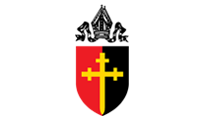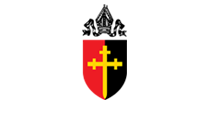The History of the Anglican Church on Borneo soil commences on the 29th June 1848, when a party of missionaries arrived in Sarawak at the invitation of James Brooke, Rajah of Sarawak. Their leader, Francis Thomas McDougall, was not only a priest but also a doctor, which made him ideally suited for the work.
The Borneo Church Mission was established in England in 1846; its purpose was to send Anglican missionaries to Borneo.
The missionaries established their base on a tract of land provided by the Rajah in Kuching, at a short distance from Sarawak River. Here, allocation was made for a church which was to serve as pro-cathedral for many years, a school which later grew into St. Thomas’s and St. Mary’s, and a dispensary which speedily won McDougall the affection and trust of the Chinese and Native townspeople who lived nearby. Within the walls of these buildings, the mission station cradled the infant Church in Borneo.
It was soon realised that the Church in the Rajah’s territory would be better administered as a bishopric. The Society for the Propagation of the Gospel supported the proposal and contributed a sum of £5,000 towards the endowment. But the political conventions of the day ruled that no Anglican Diocese might be created outside the limits of the British Empire, and Sarawak was technically an independent principality of Rajah James Brooke. The difficulty was sidestepped by founding the Diocese upon the Island of Labuan, a Crown Colony since 1846. The Bishop of Labuan could then be appointed Bishop of Sarawak by the Rajah; this practice prevailed until Sarawak became a Crown Colony in 1946.
Letters Patent was issued on 6th August 1855, erecting the “Island of Labuan and its Dependencies into a Bishop’s See or Diocese to be styled the Bishopric of Labuan.” McDougall was nominated by the Crown as the first Bishop, and was consecrated on 18th October 1855 in Calcutta. On the 1st January 1856 he was appointed Bishop of Sarawak.
The linked Diocese of Labuan and Bishopric of Sarawak increased in size as the state of Sarawak grew, and Anglican work in North Borneo and Brunei developed. It extended further when, by an Act of Parliament in 1869, the Church in the Straits Settlements (Singapore, Penang and Malacca) was separated from the See of Calcutta and placed under the Episcopal care of the Bishop of Labuan. This arrangement lasted into 1909, when the Diocese of Singapore was founded.
The first sixty years of the Church in Borneo are a chronicle of heroic effort, much disappointment, long, faithful and lonely service by priests and lay missionaries. Asian workers played an increasing part, as the formation of a truly indigenous church had been intended from the beginning.
After 1909, when the Bishop could concentrate on Borneo alone, a new era in the life and witness of the Church began. Three decades of well-planned growth and development followed, with the longed-for ordination of Dayak and Chinese clergy in increasing numbers.
After the devastation of World War II, the Diocese of Labuan and the Bishopric of Sarawak were joined into the Diocese of Borneo; Nigel Cornwall was consecrated Bishop on 1st November 1949. Cornwall’s immediate task was, literally, to restore the ruins of the churches, schools and other mission property destroyed during the years of the Japanese occupation. 1953 saw the construction of the new St. Thomas’s Cathedral to replace the quaint, leaky wooden edifice built by McDougall. Most important, men prepared for ordination at the House of Epiphany provided nine new priests in 1956.
By 1962, plans were completed for the division of the Diocese of Borneo. The new Diocese of Jesselton (Sabah) including Labuan, came into being on 24th July 1962. The remainder of the Diocese including Brunei was reconstituted as the Diocese of Kuching on the 13th August 1962; Nigel Cornwall continued as Bishop.
The limits of the Diocese are those of the present Administrative Divisions of the State of Sarawak and Brunei Darussalam together with that part of Indonesian Borneo lying North of the Equator, and West of longitude 115 º42’.
On 7th April 1970, the Diocese of West Malaysia was formed to separate his region from Singapore.
The present Bishop is the Rt. Revd. Datuk Danald Jute, who is the 14th Bishop since 1855 when the Diocese was first enacted.
Excerpt from the Constitution of the Synod of the Church in the Diocese of Kuching.
To glorify God and to affirm the Lordship of Jesus Christ and to proclaim the Good News of the Kingdom by obeying the Great Commission and to seek to live out the Great Commandment in the power of the Holy Spirit.
We believe that God wants the Diocese to work in unity, characterized by:
- Congregational worship that is wholehearted, enriching and meaningful celebration.
- Prayerful dependence on God.
- Effective biblical preaching and teaching.
- Exercise of the gifts of the Holy Spirit by all members for the edification of the whole body of Christ and for the extension of the Kingdom of God.
- Discipleship for all members through small groups in the community.
- Members both clergy and laity equipped for effective ministry of evangelism and social concerns.
So that the Church will be a church in whose worship there is the joy of the Spirit, in whose preaching there is the authority of the Spirit, in whose service, the gifts of the Spirit are in full use and in whose fellowship there is the love of God.
To encourage missionary partnership through inter-parish ministry and with other churches.
To encourage personal devotion and regular corporate prayer meetings.
To identify and train personnel for the manifold works of ministry like teaching, preaching, evangelism, youth works, pre-marriage and marriage counsellings and so on.
To encourage the parishes to be self-reliant so that they can be self-supporting.
To encourage renewal and restoration to Anglicans in the Diocese.
To identify the unreached and the unchurched.
To build up the body of Christ to become mature and to attain the fullness of Christ.
“To prepare God’s people for works of service, so that the body of Christ may be built up until we all reach unity in faith and in the knowledge of the Son of God and become mature, attaining to the whole measure of the fullness of Christ.” Ephesians 4: 12-13


